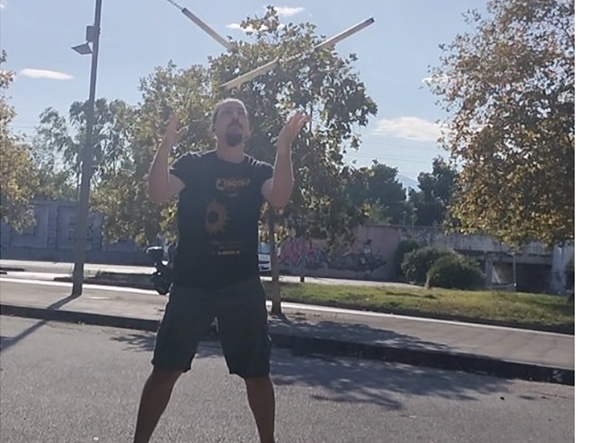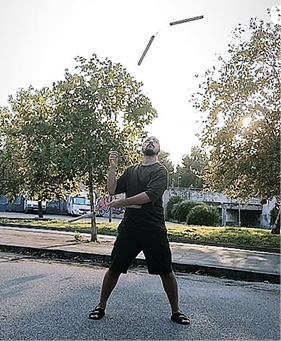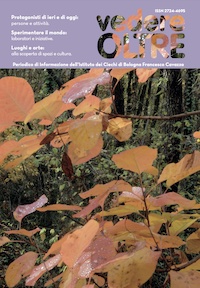I have always found sport, and more specifically martial arts, to give a strong sense of confidence and self-assurance. Finding one’s sporting “why” is a satisfaction that few things can give. Finding one’s own sporting practice is not only a form of release, an aid to living everyday life in an attempted state of stillness, but is above all an ongoing quest for self-improvement, both technical and personal.
Deserving a new belt in a martial art, being able to play a whole game of the sport one plays, feeling part of a team or being considered essential or irreplaceable are all anchors of strength that not only give one courage and confidence for everyday life, but also help us explore, experience and deal with the most diverse situations we might find ourselves in. With so many available sports, this was not the first choice for me and, indeed, was not really on the list. I was introduced to nunchaku at the age of 17 and from there, after a few tugs and pulls, I started practising it assiduously within a couple of years. Slowly, I have come to love the technical form that a martial art can teach you in relation to what is considered a weapon, but for me it represents something else.

Nunchaku and other “weapons” unfortunately have this meaning because it is the only use that has been made of them for years, whereas my aim is to bring together martial art and juggling.
I tried to do this on several occasions and, in 2018-2019, I participated in my first nunchaku tournament, a competition with participants from various countries around the world. This allowed me to compete with people who are legends in this field. Some of the best trainees had their names next to mine and this, besides being a source of pride, was also a great incentive for me to give my best.
That year, there were just over 200 participants, and, after a year’s effort, I made it to the finals, tied for 7th place with 6th. It is hard to forget, also because I was pleased with the results. As I said, some of the biggest names were close to mine and this forced me to continue and push myself further. In fact, I believe that only those who stop really lose. The following year, there was a new opportunity. This time just under 400 participants, people from the most diverse backgrounds: those who came from juggling, those from martial arts and those who simply participated because they were fascinated by this art.

Getting to the finals was not the most difficult thing, but it was very challenging to combine with the training with the vocational training I was doing at Istituto Cavazza. I practised by finding my time between classes, in the tightest of schedules and often in the coldest moments of that long autumn and winter. Hours upon hours looking for the sequence that gave me satisfaction, and eventually, attempt after attempt, I reached my goal. I won the tournament with a lot of hard work and passion, an achievement that still leaves me with the strong satisfaction of having done something that made me proud. I never told anyone about my disability before I won, I didn’t want anyone to have favouritism or for my victory to be belittled by any opponent. And so, I did not say anything until the end.
I share this experience to encourage those who have a passion to follow it, cultivate it and make it grow, no matter what physical difficulties they may have. Some things seem impossible unless they are “seen” from different angles, and when you finally succeed, your path seems clearer and your steps safer.





.png)